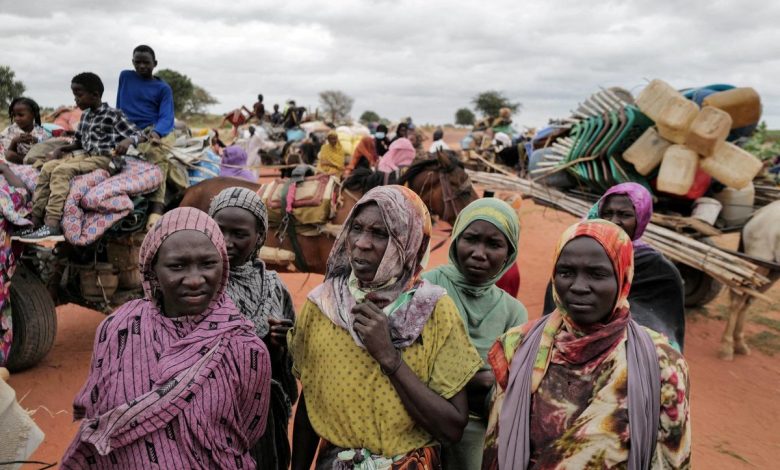Reports
“Hope had no place in our hearts”: The Struggles of Sudanese Women During Wartime

Sudan Events – Agencies
Israa, a 32-year-old woman, was cradling her newborn son amid shelling and gunfire. When the war in Sudan broke out in April 2023, she was trying to reach a health clinic to treat her child, who was suffering from infections and breathing difficulties. However, with roads closed due to fighting, the young mother couldn’t make it to the clinic; her son died in her arms.
When she became pregnant again in August of the previous year, she was haunted by fears of losing another child. “I always dreamed that I would lose this baby too,” Israa told the United Nations Population Fund (UNFPA), the UN’s sexual and reproductive health agency.
As the crisis in Sudan worsened and diseases like polio and cholera spread, access to healthcare became one of the biggest challenges for residents of Khartoum. Most medical facilities were forced out of service due to destruction and severe supply shortages.
“There is only one maternity hospital functioning in Khartoum,” said Israa. “It’s extremely dangerous to move around the city – one of our neighbors died on her way to the hospital.”
During the war, Israa and her family were forced to move repeatedly, as areas that were safe one day became deadly the next. Eventually, they found shelter in an overcrowded displacement center along with others who had fled Khartoum.
Insecurity has engulfed Khartoum, once Sudan’s largest city, which now has vast areas resembling ghost towns. Conditions were dire in the centers set up for people forced to leave their homes: extreme overcrowding, and basic sanitary necessities were often lacking. Food also became increasingly scarce, leaving many fighting severe hunger at a time when Sudan faces its worst levels of acute food insecurity on record.
“I was five months pregnant when I arrived at the center,” said Israa. “For me, it felt like moving from one grave to another. We were constantly expecting something bad to happen. Hope had no place in our hearts.”
Amid these harsh conditions, mobile health teams supported by the UNFPA reached the center to provide reproductive health services and protection for women and girls living there. “The mobile teams play a vital role in preventing maternal deaths by providing a comprehensive range of medical services in war-affected areas of Sudan,” explained Mohamed Hassan Nahat, the team’s coordinator.
Israa received prenatal care and micronutrients from the team, which made regular visits to care for her and other women and girls at the center. “They didn’t just help me with medical care; they also gave me a sense of safety and hope that I hadn’t felt in months,” she said.
Israa gave birth to a healthy baby boy, with the help of the mobile team. “I gave birth in the shelter. They took care of me and the baby – I even named him Mohamed after the doctor who helped me.”
The UNFPA has deployed 56 mobile health teams across 11 states in Sudan, providing sexual and reproductive health services and protection from gender-based violence. Since the conflict broke out in April 2023, the teams – consisting of doctors, pharmacists, lab technicians, psychologists, and midwives – have conducted over 150,000 medical consultations.
Though they save lives and provide the only medical care many have received, humanitarian workers like social worker Nasreen Kamal Abdullah feel they want to do more for these communities.
“The time available at the clinic was not enough to treat everyone – we need to visit each community more frequently to reach more people and provide continuous care,” Nasreen told the UNFPA. “Most of the women we met who have mental health issues stopped their treatment because they can’t afford the medication.”
Reaching communities and ensuring the teams’ mobility is crucial to expanding access to essential services in remote areas and preventing maternal deaths due to unsafe deliveries and high-risk pregnancies. The lack of transportation often means that many cannot reach a health center in time.
On average, the teams cover three different sites per week, spending a day or two at each one, depending on the size and needs of the community.
Dr. Nahat said, “Even though I didn’t leave Khartoum during the war and continued working in its hospitals, this experience was different.” He added, “I reached distant areas and connected with people I hadn’t reached before. It was a great morale boost for them to know that there are organizations that care about them and won’t leave them behind.



